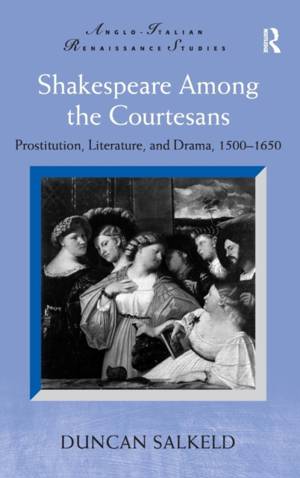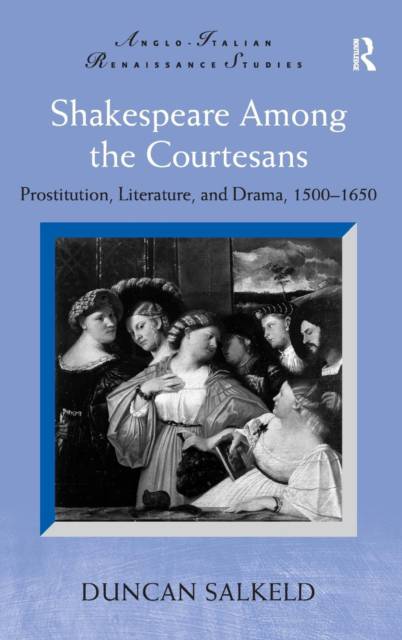
- Afhalen na 1 uur in een winkel met voorraad
- Gratis thuislevering in België vanaf € 30
- Ruim aanbod met 7 miljoen producten
- Afhalen na 1 uur in een winkel met voorraad
- Gratis thuislevering in België vanaf € 30
- Ruim aanbod met 7 miljoen producten
Zoeken
Shakespeare Among the Courtesans
Prostitution, Literature, and Drama, 1500-1650. Duncan Salkeld
Duncan Salkeld
€ 343,45
+ 686 punten
Uitvoering
Omschrijving
Paying special attention to Anglo-Italian cultural and sexual relations during the Renaissance, this study traces the development and decline of the courtesan in English drama. Salkeld draws on original historical materials to explore contradictory dramatic representations of courtesans in a variety of texts ranging from Shakespeare's poems and plays to works by Aretino, Nashe, Dekker and Middleton.
Specificaties
Betrokkenen
- Auteur(s):
- Uitgeverij:
Inhoud
- Aantal bladzijden:
- 220
- Taal:
- Engels
- Reeks:
Eigenschappen
- Productcode (EAN):
- 9780754663874
- Verschijningsdatum:
- 5/10/2012
- Uitvoering:
- Hardcover
- Formaat:
- Genaaid
- Afmetingen:
- 156 mm x 234 mm
- Gewicht:
- 489 g

Alleen bij Standaard Boekhandel
+ 686 punten op je klantenkaart van Standaard Boekhandel
Beoordelingen
We publiceren alleen reviews die voldoen aan de voorwaarden voor reviews. Bekijk onze voorwaarden voor reviews.








